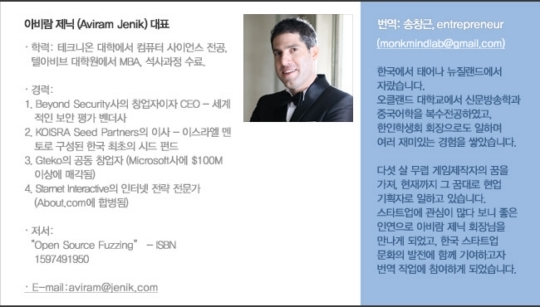어떤 이들은 특정한 기준을 두고 포기할 때를 결정합니다. 가령 현금 흐름이 적자를 보일 때라던가, 은행 예금이 다 떨어졌다거나, 또는 계획했던 일들이 실패로 돌아갔을 때와 같이 말이죠. 이러한 방식은 어느 정도까지는 괜찮지만, 그렇다고 항상 옳은 방법은 아닙니다.
사실 포기와 관련된 이슈는 스타트업 생태계에선 기준처럼 여겨지는 질문이기도 합니다. 이 질문이야말로 성공과 실패의 규모 차이를 만들어낸다고 할 수 있지요.
스타트업이 점점 죽어갈 때 무엇을 해야하는가라는 주제와 관련해 성공과 실패 사례를 다룬 이야기들은 많습니다. 그리고 이런 이야기들이 전해주는 도덕적 관념은 모두 다르지만, 결국 그 핵심에는 (스타트업을 운영하는 것은) 도박과 같다는 공통점이 있습니다. 스타트업을 운영하는 것에는 확실한 규칙 같은 게 없지요.
상투적인 이야기 하나로 시작해봅시다. 어떤 스타트업이 곧 망할 상태에 이르렀는데, 그럼에도 포기하지않고 결국 해결책을 찾아냈다 합시다. 그리고 결국 엄청난 성공을 이루어 창업자는 영웅이 되는 거죠. 이러한 이야기는 당신이 떠올리는 수많은 회사들이 실제로 겪어온 실화입니다.
스티브잡스가 임시 CEO(Interim CEO)로써 애플에 복귀했을 때, 애플은 경영난을 겪고 있었지요 (사실 애플 제품에 붙는 i자는 임시CEO라는 뜻의 interim CEO를 줄여 말하는 i-CEO에서 기인했다고 합니다). 실제로 애플은 아주 빠른 속도로 파산 위기에 몰리고 있었구요.
당시 애플에는 잘 나가는 제품이 없었음에도 거대한 규모의 연구와 기타 소비가 행해지고 있었지요. 잡스가 아이팟과 아이폰을 통해 회사를 다시 성공적인 기업으로 일궈냈을 때, 사람들은 그의 창조성을 칭찬했지만, 사실 그들은 잡스가 거대한 액수의 연구비와 다양한 제품군, 그리고 직원들을 크게 잘라냄으로서 급한 불을 껐다는 사실을 잊곤 합니다. 당시 애플에게는 경비절감이야말로 살아남는데 있어 제품개선보다도 더 중요한 요인이 되었을 겁니다.
오라클은 CEO인 래리 앨리슨이 파산 한달 전에 해결 방안을 가까스로 찾아냄으로서 위기를 넘긴 또 다른 경우입니다. 그러나 앨리슨은 그 당시에 내린 결심이 정말로 회사를 살릴 수 있을지 확실하지 않은 상태였고, 심지어 회사가 아주 높은 확률로 파산할 것이라 믿기까지 했답니다.
애플의 경우에는, 비용절감이 확실히 회사를 구해낸 방법이었다고 말할 수 있습니다. 오라클의 경우, "상황이 좋아질 것이다"라는 맹신 하나로 버텨온 케이스구요. 제가 그간 속해왔던 모든 스타트업들이 앞서 말한 경우들과 같이 눈 앞에 끝이 보이는 순간을 겪었습니다. 이런 위기 속에서 살아남기 위해선 경험에 비추어 배워야만 합니다 (그래서 다음 번에는 다른 종류의 실수만 할 수 있도록요).
그러나 이게 이야기할 내용의 전부는 아닙니다. 레딧(Reddit)이라는 회사의 경우, 회사를 헐값에 팔아 넘겼을 때 그들에게는 더 이상 나아갈 길이 없다고 생각했다고 합니다. 그러나 그 후의 회고에 따르면, 그렇게 생각한 건 실수였다고 하네요. 왜냐면 이 회사는 인수 후에도 여전히 가장 거대하면서도 영향력이 큰 웹사이트 중 하나거든요. 페이스북과 구글의 경우에는 인수제안을 거절하고 계속해서 큰 결실들을 이루어냈습니다. 레딧 또한 같은 길을 걸을 수는 있었겠지요.
그러나 레딧의 경쟁사인 디그(Digg)의 경우, 거의 모든 거대 인터넷 회사로부터 인수 제안을 받았었으나 창업자가 모두 거절했고, 이후 사이트의 인기가 사그러들면서 결국 웹사이트와 기술을 합쳐 겨우 50만 불이라는 값에 팔게 되었습니다. 바로 4년전만해도 구글이 2억 달러의 인수 액을 제시했었는데 말이죠. 디그의 창업자와 같은 경우엔 회사를 파는 편이 가장 좋은 선택이었을 겁니다.
회사를 팔아야 할까요, 아니면 팔지 않고 있어야 할까요? 회사 문을 닫을까요, 아니면 계속 살아남으려 시도 해봐야할까요? 여기에 좋은 답변이란 없습니다. 만약 여기까지 읽으셨는데도 이 중요한 질문에 대한 좋은 답변을 드리지 못했다면 죄송합니다.
그러나 더욱 슬픈 것은, 스타트업에 몸담은 사람으로서 당신은 최소 한 번 이상 이런 일을 겪게 되리란 점입니다. 언젠가는 체스판에서의 체크메이트된 킹과 같이 꼼짝 못하는 상태가 되었다고 느끼실 때가 있을 겁니다. 그리고 그건 아주 슬프지만서도 한편으로는 앞으로 나아가기 위해선 어쨌든 결정을 내려야만 하는 상황입니다.
여기에 대해 한 가지 제안할 것이 있습니다. 바로 이러한 암울한 시기에는 특히나 더 일을 잘 해내라는 것입니다. 감정적이나 이성적인 모든 면에서 내리기 어려운 결정을 목전에 두었을 때는, 단순히 하나의 스텝에만 집중하는 것이 좋습니다.
모든 것을 다 하려 하지 마시고, 하나에만 집중하세요. 만약 스타트업이 무너질 것만 같은 걱정이 든다면, 그 걱정을 해결해줄 수 있는 하나의 해결책을 찾아내고 그 것에만 집중하는 겁니다 (자금을 조달하던, 유저에게 얻는 수익을 증대 시키던, 소비를 절감하건, 사람을 해고하건 , 인수할 회사를 찾건 말이죠). 그 행동에만 집중하시고, 그 다음 과정을 위한 생각은 떨쳐버리십시오. 실제로 그 다음 단계에 접어 들어서야만 정말로 그 일을 시작할 수 있기 때문이지요. 그러나 그렇지 못했다면, 현재 그 단계를 다시 한 번 시도해보는 겁니다.
What to do when you are out of moves
When should you decide it’s time to give up? The motivational posters say to “never give up” or “never say never” or some clever statement like that. But that’s just silly (like many other aspects of the motivational posters).
Others give certain metrics: When your cashflow shows a negative future balance, or when you are out of money in the bank, or when your plan fails. They are all right to a certain extent, but not always.
In fact, this is a canonical question in the startup world. It’s an important question that makes the difference between a huge success, a small success, a failure and a huge failure. There are many stories about startup failures and successes that touch on the subject of what to do when it’s clear your startup is about to die; the moral of the different stories are different, and the bottom line is it’s a gamble. There are just no clear rules.
Lets start with the cliche’: a startup is about to die, but it does not give up and finds a way out. It ends up being amazingly successful, and the founders are heroes.
This story is true for more companies that you’d think. Apple was going into bankruptcy when Steve Jobs returned to it as interim CEO (the shorthand i-CEO is the reason for the i- before the product names). In fact, it was going into bankruptcy - fast. Apple at the time did not have any winning products, but had a huge R&D and other expenses. When everyone celebrates Steve Jobs creativity and how he made Apple successful with the new products iPod and iPhone, they forget to tell that he first saved Apple by cutting a large part of its R&D, terminating products and firing people. That expense cutting was probably more important for Apple’s survival than the product innovation that came after.
Oracle is another example of a company that was just one month from declaring official bankruptcy before its CEO Larry Ellison was able to find a way out. But Ellison himself wasn’t sure that his move will be successful, and at the time, believed that Oracle may very well fail.
In the Apple case, pure rationality in the form of cost cutting was what saved it. In the Oracle case, it was almost blind belief that “things will turn out well”. All the startups I’ve been a part of, had these moments where we thought the end is near, sometimes just around the corner. We managed to survive, and learned from the experience (only to make a different mistake, next time).
But that’s not the only story to tell. Reddit felt they were out of moves, when they sold themselves for a small amount. In retrospect, that was a mistake - reddit is still one of the largest and most influential web sites. Facebook and Google declined such acquisition offers, and continued to be the huge successes they were. Reddit could have followed the same path.
On the other hand, Digg was reddit’s competitor, and for a while it seems it was winning the competition. It received huge acquisition offers from just about every large Internet player, but Digg’s founders refused them all. But after a while, Digg’s popularity cooled the founders are no longer there. The web site and technology were sold for a total of $500,000, just four years after google offered $200 Million for the company. In retrospect, he should have sold Digg when it was in its prime.
So should you sell? Or should you stay? Should you close down? Or keep trying? There are no good answers. I’m sorry if you read so far to get no good answer to this very important question. What’s worse, is that you are likely to face this more than once in your startup’s life. There will be times when you will feel like a king on a chess board, being ‘checkmated’ with no valid moves to make. This is a sad, mostly dark feeling and it can only be judged in reverse, while the decision has to be made going forward.
I do have one suggestion, that works especially well in those dark times. When faced with a difficult decision, both emotionally and logically, it’s often best to just focus on the next step. In other words: don’t try to do everything, just focus on one thing. If you’re worried your startup will go under, figure out one action that you believe will help, and focus on it alone (fund raising, increasing revenue from users, cutting costs, firing employees or finding an acquirer). Focus on that action, and block out of your head anything having to do with the next step. You’ll deal with it when you get there, if you get there. And if not, please get up and try again.

�
관련뉴스
















